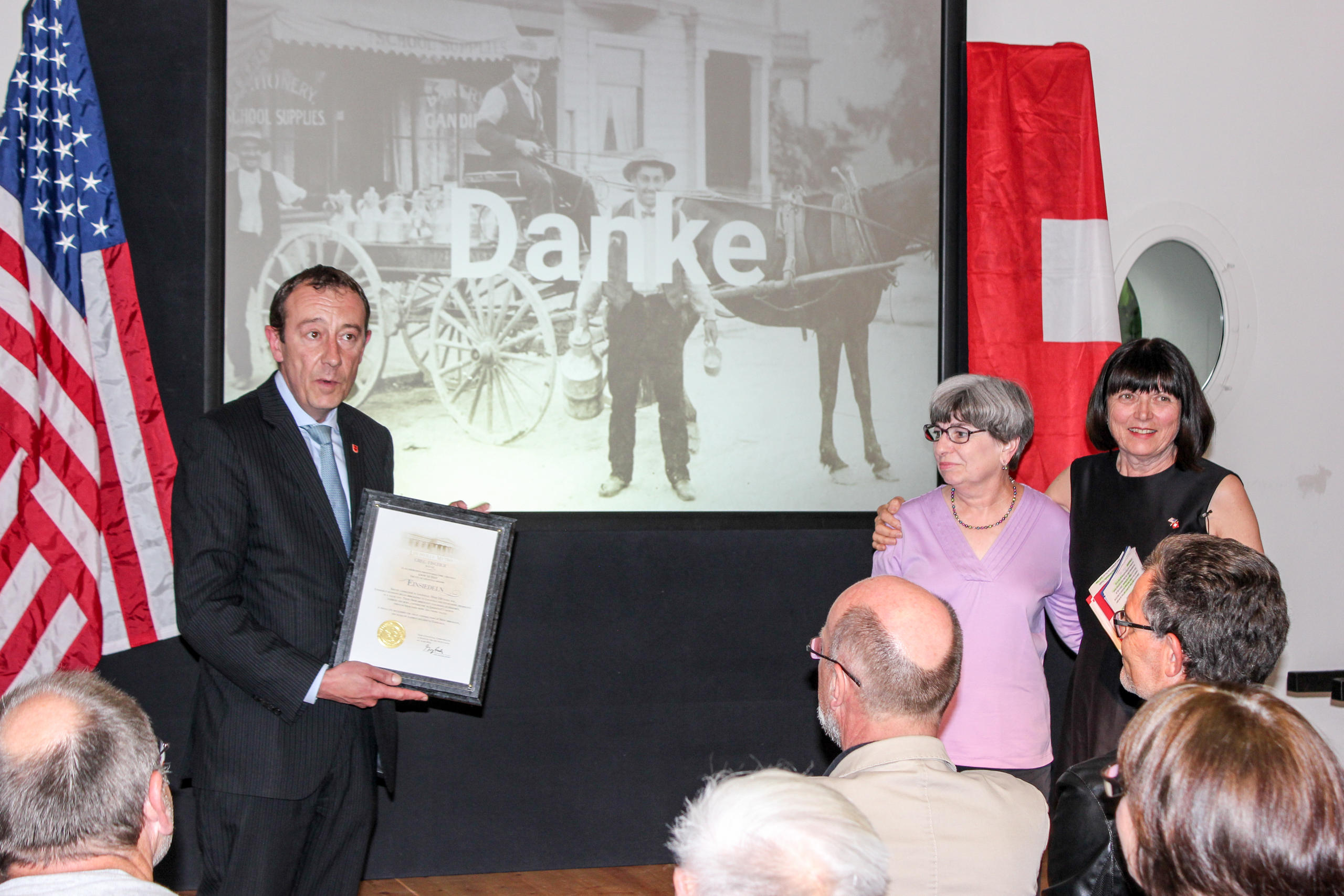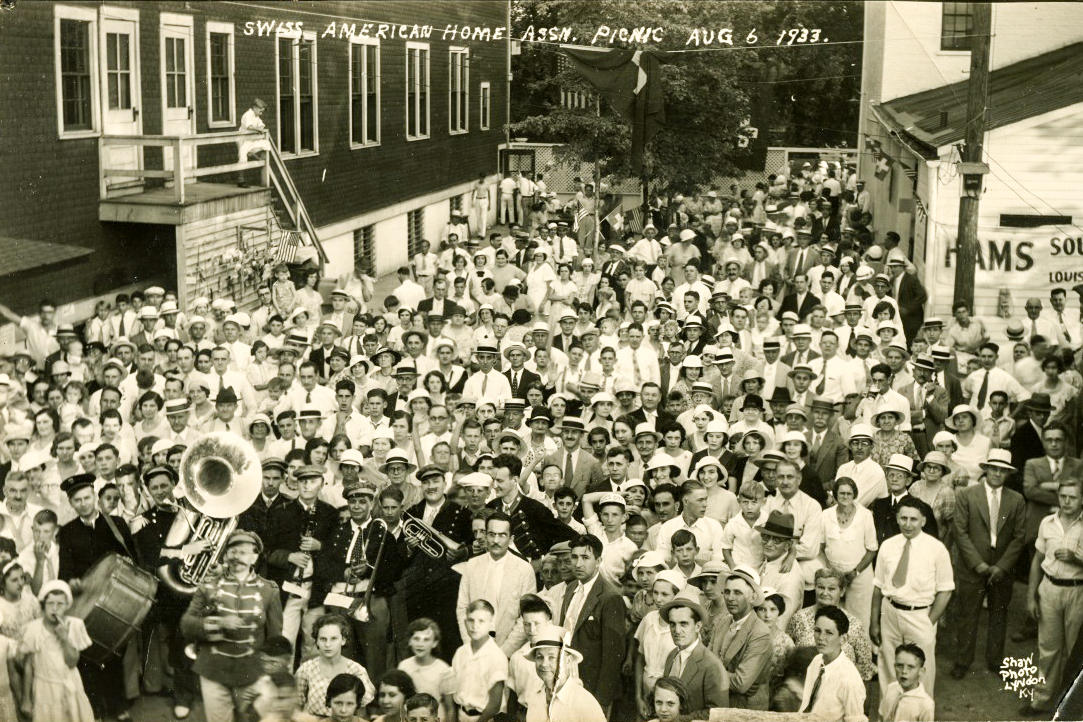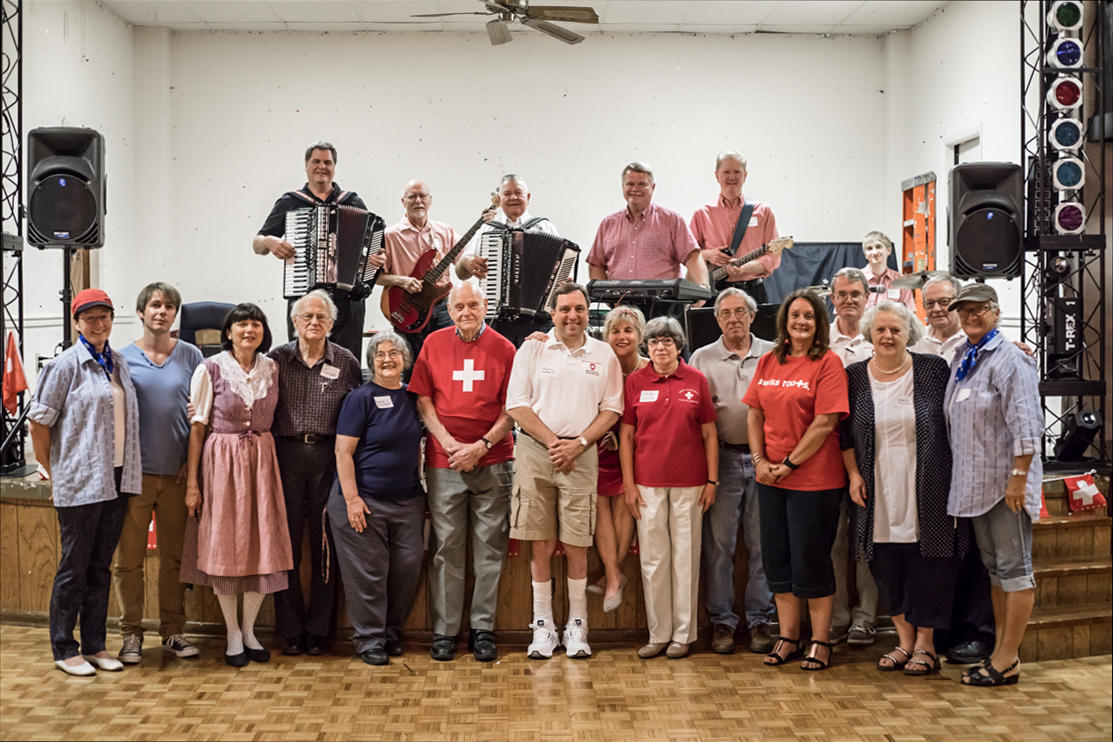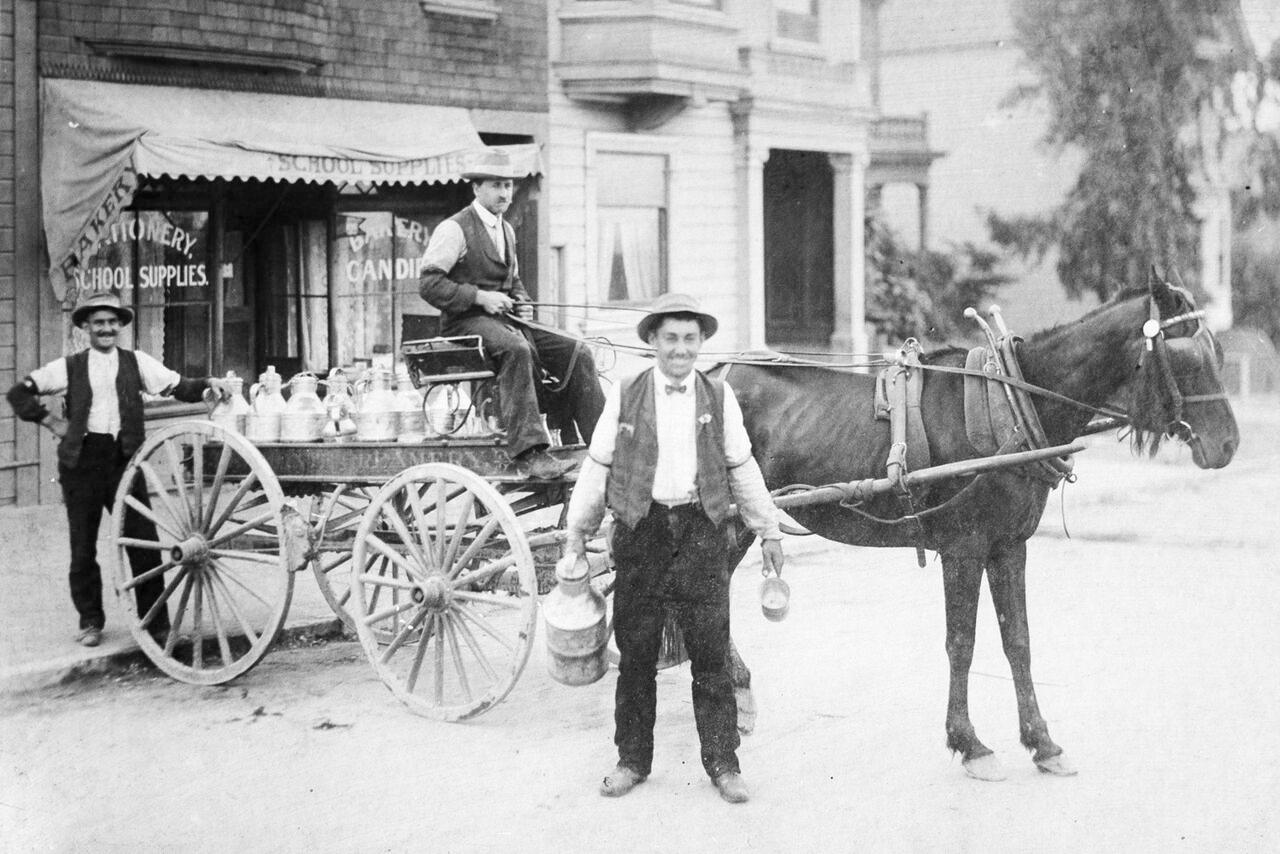
On the trail of Swiss settlers in Kentucky

A project has been launched to build bridges between Einsiedeln, Switzerland and Louisville, Kentucky – the destination of many 19th century Swiss immigrants.
If you scan the Louisville External linktelephone book you will find quite a few Fuchs, Kaelins and Zehnders – all descendants of people from the central Swiss town of EinsiedelnExternal link.
Between 1850 and 1900, around 2,000 people from Einsiedeln emigrated to the United States, with many of them ending up in Louisville. About an hour’s drive away in southern Indiana is the Saint Meinrad ArchabbeyExternal link, founded by Benedictine monks from Einsiedeln Abbey.External link
Susann Bosshard-Kälin
Bosshard-Kälin has published two books in English and German on Swiss emigration to the United States.
westwärts – Begegnungen mit Amerika-Schweizerinnen, eFeF Verlag, Wettingen 2009
westward – encounters with Swiss American women, SAHS, Washington 2010
Emigrant Paths – Encounters with 20th Century Swiss Americans, SAHS, 2013
Nach Amerika – Lebensberichte von Schweizer Auswanderern, Limmat-Verlag, 2014
All this was enough to pique the interest of journalist and author Susann Bosshard-KälinExternal link, herself from Einsiedeln, who has written widely on Swiss emigration to the US.
The result was the “Einsiedeln ElsewhereExternal link – the Presence of a Swiss Village in the American City of Louisville, Kentucky” project to chart the progress of these Einsiedeln emigrants and to connect with their descendants.
Strong ties
“From the very start of the project it was clear that the Louisville Einsiedeln descendants – mostly third to fifth generation – surprisingly still felt strong ties with their former homeland. Although only a few spoke German and most of them had never even visited Switzerland, they were proud to be Swiss and Einsiedler,” Bosshard-Kälin explained.
But the knowledge and memories about the Swiss community in Louisville is disappearing. Time, thought Bosshard-Kälin, to give it some impetus.
The project was founded in spring 2015. Also on board are a historian, a designer and photographer, a camera woman and a filmmaker who are documenting the links between the two places through text, pictures and video.
The first information evening in Louisville in April 2015 attracted a lot of interest, with around 100 people with Einsiedeln roots attending. The first filming and research began. A second visit in August that year featured the revival of an old tradition: the Swiss Picnic, on August 1 – Swiss national day.


Last month the project held its first event in Einsiedeln, with an official certificate from the mayor of Louisville, being handed over to the Swiss town, honouring the Louisville-Einsiedeln links.
Emigrants from Einsiedeln were successful milk producers and farmers.

Catholic influence
But why did so many people leave Einsiedeln – the most of any region in central Switzerland? It wasn’t due to poverty, research has found. One main reason is that the town is a Catholic centre. Indeed, it is dominated by a huge Benedictine abbey, which is famous for its black Madonna statueExternal link.
“Thus the Catholic wider denominational situation of the 19th century led to the building of strong bridges between America and Einsiedeln,” the project explains.
Monks founded the daughter foundation at Saint Meinrad, which became an important Catholic centre in the region. In 1853 the Catholic books and pictures-publisher BenzigerExternal link of Einsiedeln founded branches in New York, Cincinnati, St. Louis, and Chicago. Its wares were very popular, especially among Irish and German Catholic immigrants.
These stable connections ensured that emigrants from Einsiedeln went almost exclusively to the US.
Filming of a documentary is planned from this autumn.
The important thing is to keep these links alive, says Bosshard-Kälin, “so that the Einseideln roots in America and Switzerland are not forgotten in the 21st century”.

In compliance with the JTI standards
More: SWI swissinfo.ch certified by the Journalism Trust Initiative

























You can find an overview of ongoing debates with our journalists here . Please join us!
If you want to start a conversation about a topic raised in this article or want to report factual errors, email us at english@swissinfo.ch.